SpringBoot 是为了简化 Spring 应用的创建、运行、调试、部署等一系列问题而诞生的产物,自动装配的特性让我们可以更好的关注业务本身而不是外部的XML配置,我们只需遵循规范,引入相关的依赖就可以轻易的搭建出一个 WEB 工程
实际项目开发中,程序往往会发生各式各样的异常情况,特别是身为服务端开发人员的我们,总是不停的编写接口提供给前端调用,分工协作的情况下,避免不了异常的发生,如果直接将错误的信息直接暴露给用户,这样的体验可想而知,且对黑客而言,详细异常信息往往会提供非常大的帮助…
采用try-catch的方式,手动捕获异常信息,然后返回对应的结果集,相信很多人都看到过类似的代码(如:封装成Result对象);该方法虽然间接性的解决错误暴露的问题,同样的弊端也很明显,增加了大量的代码量,当异常过多的情况下对应的catch层愈发的多了起来,很难管理这些业务异常和错误码之间的匹配,所以最好的方法就是通过简单配置全局掌控….
接下来就看看 Spring Boot 提供的解决方案
1 导入依赖
在 pom.xml 中添加上 spring-boot-starter-web 的依赖即可
<dependencies> <dependency> <groupId>org.springframework.boot</groupId> <artifactId>spring-boot-starter-web</artifactId> </dependency> <dependency> <groupId>org.springframework.boot</groupId> <artifactId>spring-boot-starter-test</artifactId> <scope>test</scope> </dependency> </dependencies>
自定义异常
在应用开发过程中,除系统自身的异常外,不同业务场景中用到的异常也不一样,为了与标题 轻松搞定全局异常 更加的贴切,定义个自己的异常,看看如何捕获…
package com.battcn.exception;
/**
* 自定义异常
*
* @author Levin
* @since
public class CustomException extends RuntimeException
private static final long serialVersionUID = 4564124491192825748L;
private int code;
public CustomException() {
super();
}
public CustomException(int code, String message) {
super(message);
this.setCode(code);
}
public int getCode() {
return code;
}
public void setCode(int code) {
this.code = code;
}
}
2 异常信息模板
定义返回的异常信息的格式,这样异常信息风格更为统一
package com.battcn.exception; /** * @author Levin * @since public class ErrorResponseEntity private int code; private String message; // 省略 get set
3 控制层
仔细一看是不是和平时正常写的代码没啥区别,不要急,接着看….
package com.battcn.controller;
import com.battcn.exception.CustomException;
import org.springframework.web.bind.annotation.GetMapping;
import org.springframework.web.bind.annotation.RequestParam;
import org.springframework.web.bind.annotation.RestController;
import java.util.HashMap;
import java.util.Map;
/**
* 全局异常演示
*
* @author Levin
* @since
@RestController
public class ExceptionController
@GetMapping("/test3")
public String test3(Integer num) {
// TODO 演示需要,实际上参数是否为空通过 @RequestParam(required = true) 就可以控制
if (num == null) {
throw new CustomException(400, "num不能为空");
}
int i = 10 / num;
return "result:"
4 异常处理(关键)
注解概述:
@ControllerAdvice捕获 Controller 层抛出的异常,如果添加 @ResponseBody 返回信息则为JSON 格式。
@RestControllerAdvice相当于 @ControllerAdvice 与 @ResponseBody 的结合体。
@ExceptionHandler统一处理一种类的异常,减少代码重复率,降低复杂度。
创建一个 GlobalExceptionHandler 类,并添加上 @RestControllerAdvice 注解就可以定义出异常通知类了,然后在定义的方法中添加上 @ExceptionHandler 即可实现异常的捕捉…
package com.battcn.config;
import com.battcn.exception.CustomException;
import com.battcn.exception.ErrorResponseEntity;
import org.springframework.http.HttpHeaders;
import org.springframework.http.HttpStatus;
import org.springframework.http.ResponseEntity;
import org.springframework.web.bind.MethodArgumentNotValidException;
import org.springframework.web.bind.annotation.ExceptionHandler;
import org.springframework.web.bind.annotation.RestControllerAdvice;
import org.springframework.web.context.request.WebRequest;
import org.springframework.web.method.annotation.MethodArgumentTypeMismatchException;
import org.springframework.web.servlet.mvc.method.annotation.ResponseEntityExceptionHandler;
import javax.servlet.http.HttpServletRequest;
import javax.servlet.http.HttpServletResponse;
/**
* 全局异常处理
*
* @author Levin
* @since
@RestControllerAdvice
public class GlobalExceptionHandler extends ResponseEntityExceptionHandler
/**
* 定义要捕获的异常 可以多个 @ExceptionHandler({})
*
* @param request request
* @param e exception
* @param response response
* @return
@ExceptionHandler(CustomException.class)
public ErrorResponseEntity customExceptionHandler(HttpServletRequest request, final Exception e, HttpServletResponse response) {
response.setStatus(HttpStatus.BAD_REQUEST.value());
CustomException exception = (CustomException) e;
return new ErrorResponseEntity(exception.getCode(), exception.getMessage());
}
/**
* 捕获 RuntimeException 异常
* TODO 如果你觉得在一个 exceptionHandler 通过 if (e instanceof xxxException) 太麻烦
* TODO 那么你还可以自己写多个不同的 exceptionHandler 处理不同异常
*
* @param request request
* @param e exception
* @param response response
* @return
@ExceptionHandler(RuntimeException.class)
public ErrorResponseEntity runtimeExceptionHandler(HttpServletRequest request, final Exception e, HttpServletResponse response) {
response.setStatus(HttpStatus.BAD_REQUEST.value());
RuntimeException exception = (RuntimeException) e;
return new ErrorResponseEntity(400, exception.getMessage());
}
/**
* 通用的接口映射异常处理方
*/
@Override
protected ResponseEntity<Object> handleExceptionInternal(Exception ex, Object body, HttpHeaders headers,
HttpStatus status, WebRequest request) {
if (ex instanceof MethodArgumentNotValidException) {
MethodArgumentNotValidException exception = (MethodArgumentNotValidException) ex;
return new ResponseEntity<>(new ErrorResponseEntity(status.value(), exception.getBindingResult().getAllErrors().get(0).getDefaultMessage()), status);
}
if (ex instanceof MethodArgumentTypeMismatchException) {
MethodArgumentTypeMismatchException exception = (MethodArgumentTypeMismatchException) ex;
logger.error("参数转换失败,方法:" + exception.getParameter().getMethod().getName() + ",参数:" + exception.getName()
+ ",信息:" + exception.getLocalizedMessage());
return new ResponseEntity<>(new ErrorResponseEntity(status.value(), "参数转换失败"), status);
}
return new ResponseEntity<>(new ErrorResponseEntity(status.value(), "参数转换失败"), status);
}
}
测试
完成准备事项后,启动Chapter17Application,通过下面的测试结果可以发现,真的是 so easy,代码变得整洁了,扩展性也变好了…
访问 http://localhost:8080/test3
{"code":400,"message":"num不能为空"}
访问 http://localhost:8080/test3?num=0
{"code":400,"message":"/ by zero"}
访问 http://localhost:8080/test3?num=5
result:2
以上是SpringBoot全局异常问题怎么解决的详细内容。更多信息请关注PHP中文网其他相关文章!
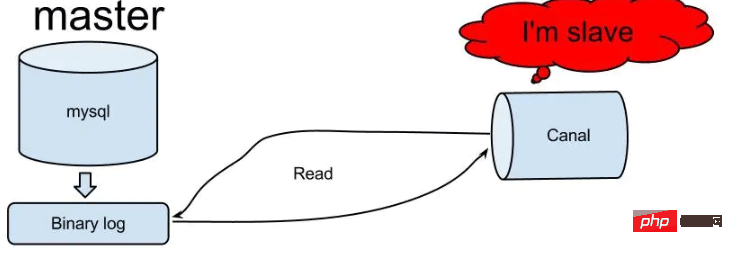 怎么使用SpringBoot+Canal实现数据库实时监控May 10, 2023 pm 06:25 PM
怎么使用SpringBoot+Canal实现数据库实时监控May 10, 2023 pm 06:25 PMCanal工作原理Canal模拟MySQLslave的交互协议,伪装自己为MySQLslave,向MySQLmaster发送dump协议MySQLmaster收到dump请求,开始推送binarylog给slave(也就是Canal)Canal解析binarylog对象(原始为byte流)MySQL打开binlog模式在MySQL配置文件my.cnf设置如下信息:[mysqld]#打开binloglog-bin=mysql-bin#选择ROW(行)模式binlog-format=ROW#配置My
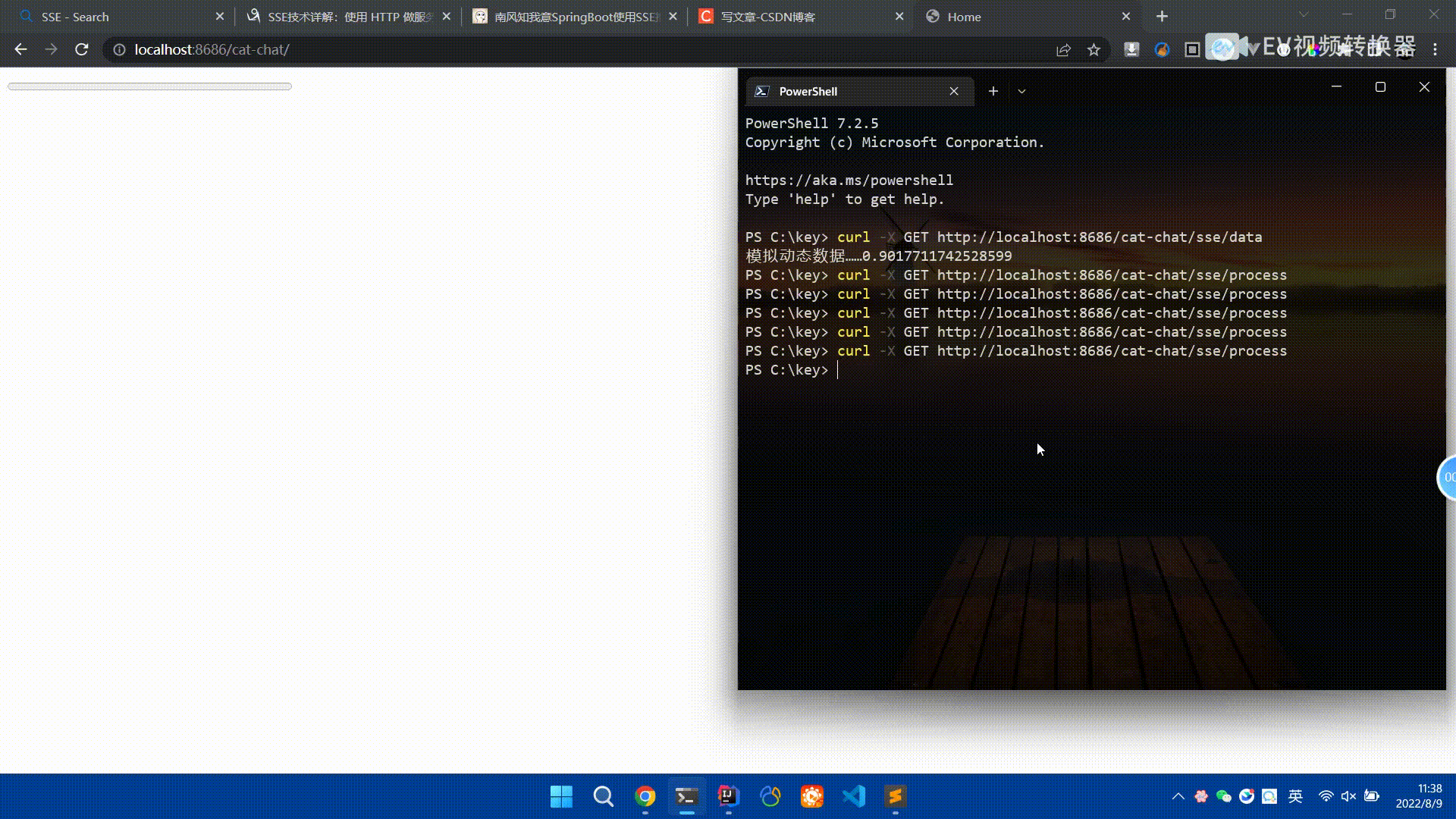 Spring Boot怎么使用SSE方式向前端推送数据May 10, 2023 pm 05:31 PM
Spring Boot怎么使用SSE方式向前端推送数据May 10, 2023 pm 05:31 PM前言SSE简单的来说就是服务器主动向前端推送数据的一种技术,它是单向的,也就是说前端是不能向服务器发送数据的。SSE适用于消息推送,监控等只需要服务器推送数据的场景中,下面是使用SpringBoot来实现一个简单的模拟向前端推动进度数据,前端页面接受后展示进度条。服务端在SpringBoot中使用时需要注意,最好使用SpringWeb提供的SseEmitter这个类来进行操作,我在刚开始时使用网上说的将Content-Type设置为text-stream这种方式发现每次前端每次都会重新创建接。最
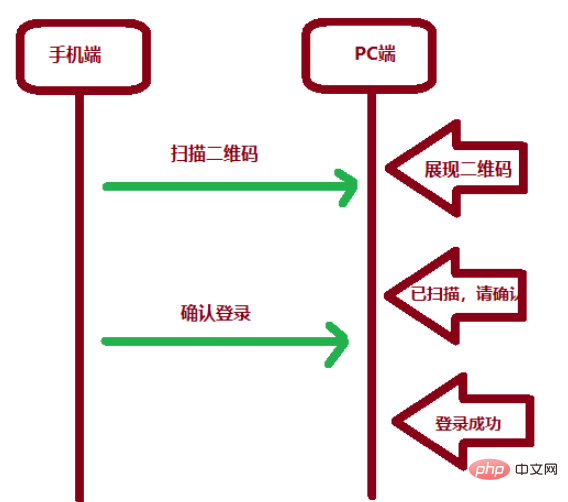 SpringBoot怎么实现二维码扫码登录May 10, 2023 pm 08:25 PM
SpringBoot怎么实现二维码扫码登录May 10, 2023 pm 08:25 PM一、手机扫二维码登录的原理二维码扫码登录是一种基于OAuth3.0协议的授权登录方式。在这种方式下,应用程序不需要获取用户的用户名和密码,只需要获取用户的授权即可。二维码扫码登录主要有以下几个步骤:应用程序生成一个二维码,并将该二维码展示给用户。用户使用扫码工具扫描该二维码,并在授权页面中授权。用户授权后,应用程序会获取一个授权码。应用程序使用该授权码向授权服务器请求访问令牌。授权服务器返回一个访问令牌给应用程序。应用程序使用该访问令牌访问资源服务器。通过以上步骤,二维码扫码登录可以实现用户的快
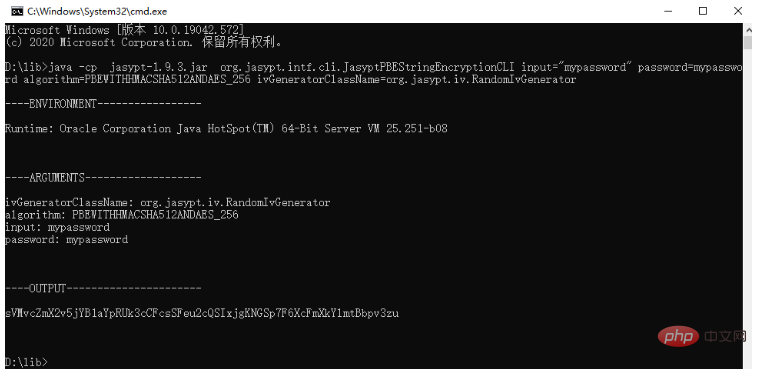 spring boot怎么对敏感信息进行加解密May 10, 2023 pm 02:46 PM
spring boot怎么对敏感信息进行加解密May 10, 2023 pm 02:46 PM我们使用jasypt最新版本对敏感信息进行加解密。1.在项目pom文件中加入如下依赖:com.github.ulisesbocchiojasypt-spring-boot-starter3.0.32.创建加解密公用类:packagecom.myproject.common.utils;importorg.jasypt.encryption.pbe.PooledPBEStringEncryptor;importorg.jasypt.encryption.pbe.config.SimpleStrin
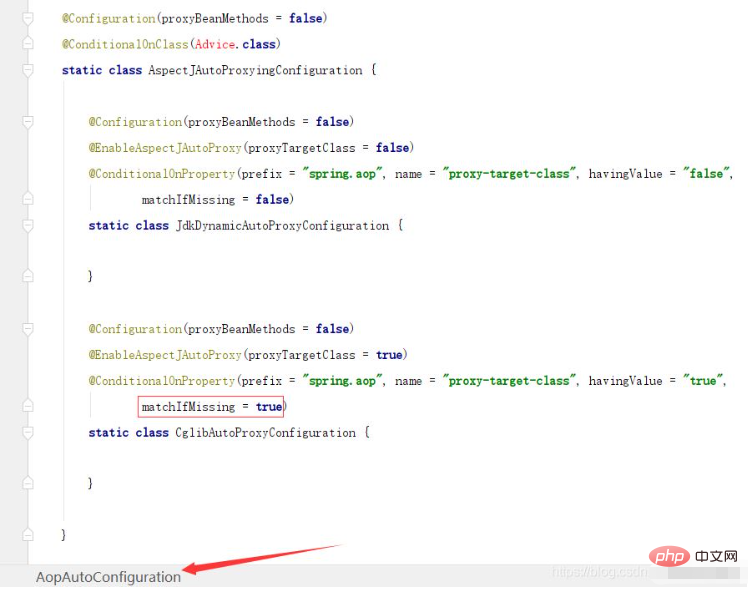 SpringBoot/Spring AOP默认动态代理方式是什么May 10, 2023 pm 03:52 PM
SpringBoot/Spring AOP默认动态代理方式是什么May 10, 2023 pm 03:52 PM1.springboot2.x及以上版本在SpringBoot2.xAOP中会默认使用Cglib来实现,但是Spring5中默认还是使用jdk动态代理。SpringAOP默认使用JDK动态代理,如果对象没有实现接口,则使用CGLIB代理。当然,也可以强制使用CGLIB代理。在SpringBoot中,通过AopAutoConfiguration来自动装配AOP.2.Springboot1.xSpringboot1.xAOP默认还是使用JDK动态代理的3.SpringBoot2.x为何默认使用Cgl
 使用Java SpringBoot集成POI实现Word文档导出Apr 21, 2023 pm 12:19 PM
使用Java SpringBoot集成POI实现Word文档导出Apr 21, 2023 pm 12:19 PM知识准备需要理解ApachePOI遵循的标准(OfficeOpenXML(OOXML)标准和微软的OLE2复合文档格式(OLE2)),这将对应着API的依赖包。什么是POIApachePOI是用Java编写的免费开源的跨平台的JavaAPI,ApachePOI提供API给Java程序对MicrosoftOffice格式档案读和写的功能。POI为“PoorObfuscationImplementation”的首字母缩写,意为“简洁版的模糊实现”。ApachePOI是创建和维护操作各种符合Offic
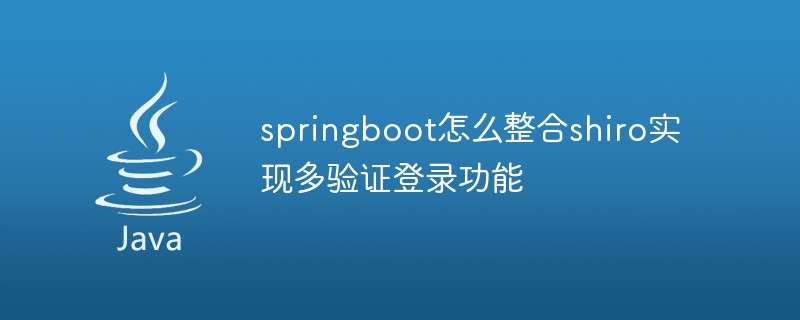 springboot怎么整合shiro实现多验证登录功能May 10, 2023 pm 04:19 PM
springboot怎么整合shiro实现多验证登录功能May 10, 2023 pm 04:19 PM1.首先新建一个shiroConfigshiro的配置类,代码如下:@ConfigurationpublicclassSpringShiroConfig{/***@paramrealms这儿使用接口集合是为了实现多验证登录时使用的*@return*/@BeanpublicSecurityManagersecurityManager(Collectionrealms){DefaultWebSecurityManagersManager=newDefaultWebSecurityManager();
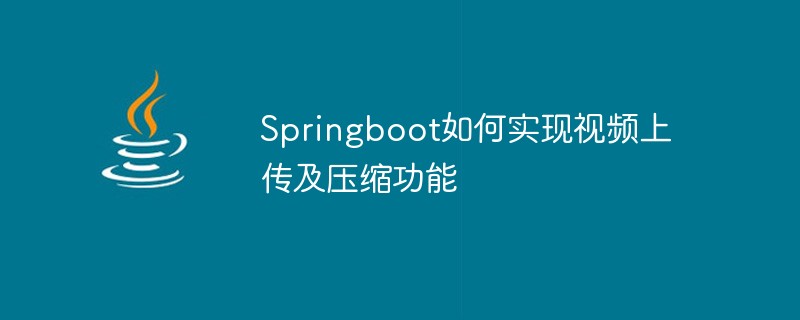 Springboot如何实现视频上传及压缩功能May 10, 2023 pm 05:16 PM
Springboot如何实现视频上传及压缩功能May 10, 2023 pm 05:16 PM一、定义视频上传请求接口publicAjaxResultvideoUploadFile(MultipartFilefile){try{if(null==file||file.isEmpty()){returnAjaxResult.error("文件为空");}StringossFilePrefix=StringUtils.genUUID();StringfileName=ossFilePrefix+"-"+file.getOriginalFilename(


热AI工具

Undresser.AI Undress
人工智能驱动的应用程序,用于创建逼真的裸体照片

AI Clothes Remover
用于从照片中去除衣服的在线人工智能工具。

Undress AI Tool
免费脱衣服图片

Clothoff.io
AI脱衣机

AI Hentai Generator
免费生成ai无尽的。

热门文章

热工具

Dreamweaver CS6
视觉化网页开发工具

SecLists
SecLists是最终安全测试人员的伙伴。它是一个包含各种类型列表的集合,这些列表在安全评估过程中经常使用,都在一个地方。SecLists通过方便地提供安全测试人员可能需要的所有列表,帮助提高安全测试的效率和生产力。列表类型包括用户名、密码、URL、模糊测试有效载荷、敏感数据模式、Web shell等等。测试人员只需将此存储库拉到新的测试机上,他就可以访问到所需的每种类型的列表。

螳螂BT
Mantis是一个易于部署的基于Web的缺陷跟踪工具,用于帮助产品缺陷跟踪。它需要PHP、MySQL和一个Web服务器。请查看我们的演示和托管服务。

mPDF
mPDF是一个PHP库,可以从UTF-8编码的HTML生成PDF文件。原作者Ian Back编写mPDF以从他的网站上“即时”输出PDF文件,并处理不同的语言。与原始脚本如HTML2FPDF相比,它的速度较慢,并且在使用Unicode字体时生成的文件较大,但支持CSS样式等,并进行了大量增强。支持几乎所有语言,包括RTL(阿拉伯语和希伯来语)和CJK(中日韩)。支持嵌套的块级元素(如P、DIV),

ZendStudio 13.5.1 Mac
功能强大的PHP集成开发环境






